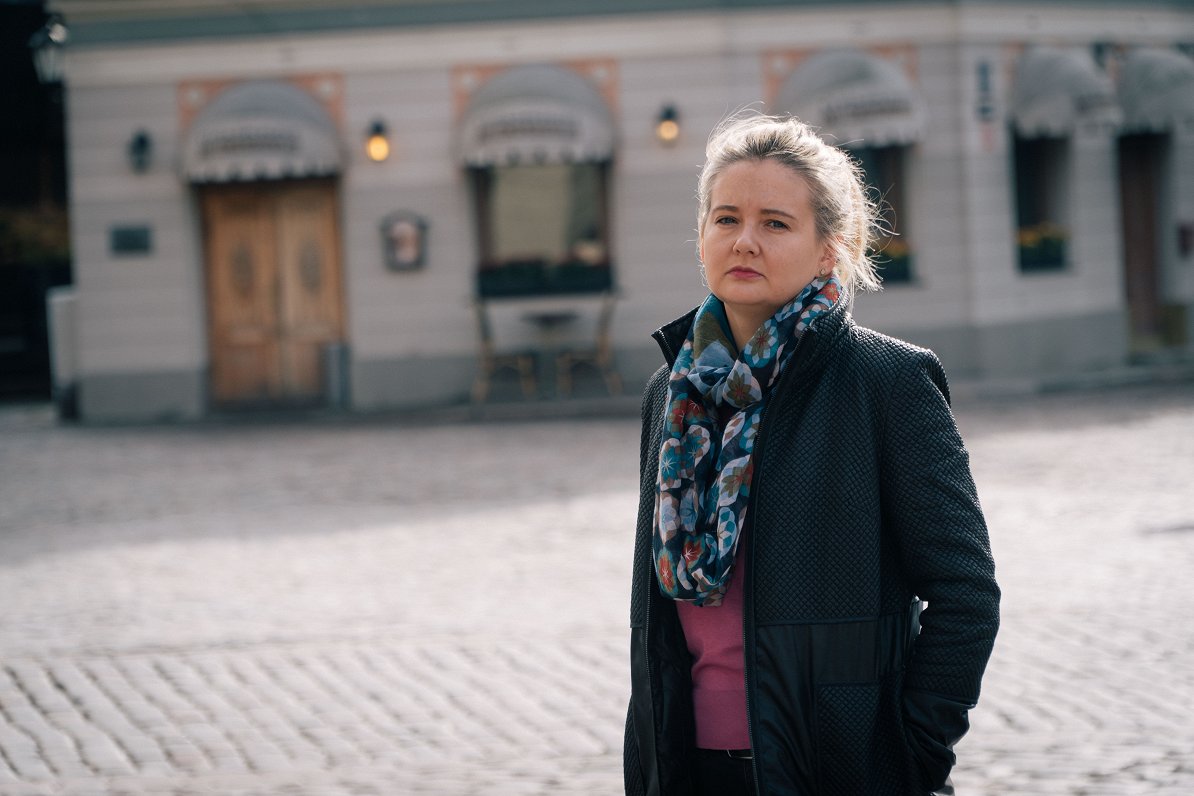As recently reported by LSM, the number of women in Saeima increased considerably at the recent elections, but in Zitmane's view there is still a very long way to go before the culture of Latvian politics is changed permanently.
Zitmane has been part of Latvian Radio's fascinating "Statistical people" project which has been attempting to record the thoughts of Latvians who match as closely as possible all the statistical data of the general population to give a snapshot of Latvia during its centenary.
Working with researcher Laura Ardava, Zitmane was deeply interested in leaders of the National Reawakening, the time when Latvia fought to regain and maintain its independence. She pointed out that the political careers of women such as Sandra Kalniete, Māra Zālīte, Marina Kostenkeka, Ieva Akuratere and Ita Kozakeviča, who could be called heroines or role models in some ways, were not always successful.
"We can only talk about Sandra Kalniete, and only then with a timeline. It took a very long time before she returned with the Unity party. We can immediately see that there is a feeling that women have done their job, but now they can stand and wait. Now we [men] will come to run the country," Zitmane said.
The researcher also pointed out that so-called "antigender" movement exists in Latvia, too. "[There are] unsuccessful attempts to resist the ratification of the Istanbul Convention. Ordinary women are the heroines, activists do not come from the political environment. Without Lolita Tomsone, who organized the "eggs protest" [against legal changes that affected women's health issues], nothing would have happened," asserted the academic.
In her opinion, Latvia's political environment is very closed and masculine and only time will tell if the growth in female representation in Saeima will have long-lasting effects.
She also suggested that the unpopularity of former parliamentary speaker Solvita Aboltina, who drew widespread criticism over a period of years, might have been different if she had been a man. Qualities such as aggression or a tendency towards authoritarianism are often viewed positively in men. "But if it comes from a woman, then she is hysterical, she's a witch," said Zitmane.
Speaking about a possible change in attitudes in the future, Zitman admitted that if a system with structural inequalities continues to hinder development and improvement, then it will be problematic.
"I hope very much that the change will take place. We will also begin to evaluate [poet] Aspazija not only as a literary figure but also as a public activist, and a women's rights activist. We will remember and fully appreciate the contribution of Sandra Kalniete to the Popular Front and the Baltic Way. In general, only one dominant masculine narrative is written and collectively remembered. What and how we remember things also determines our future. If we exclude certain stories from collective memory, whether it is a women's story or some other ethnic group's story , then we have only one story on which we are modeling the future," concluded the researcher.




























